Biona founder Noel McDonald has been trying to change the world since 1970. And despite putting planet over profit, his organic empire is growing
The organic seed for Noel McDonald was sown, quite literally, while he was living on an island owned by John Lennon.
It was 1970 and the Beatle had bought the Irish island as a potential retirement spot for himself and Yoko Ono, but offered it to a group led by Sid Rawle, known in the press as ‘The King of the Hippies’.
“So these people went there to live, trying to do self-sufficiency. I was at a party and Sid Rawle told me all about this commune. I thought: ‘Wow, that sounds like paradise.’ So the next day, I packed up and went.”
Yet life on a hippie commune soon began to grate on McDonald. He found his fellow inhabitants lacked motivation, too intent on “having fun in the summer”, when what he wanted to do was “change the world”. He left after six months, bought a small farm in the west of Ireland and lived there “doing self-sufficiency in a more organised way”.
After five years, though, he thought: “I’ve sorted out my own carbon footprint, but it’s not doing anything for the world.” So, he moved to London, opened a whole foods shop and vegetarian restaurant in Fulham with his now-wife Donata, and began making granola – the first product in what would eventually become Biona, one of the UK’s largest organic food brands.
That was in 1982. Things have gone well since. Last year, Biona turned over £25.4m, up 10% from the previous year. And last month, Biona got its first listing in Sainsbury’s, which comes on top of listings in Tesco, Waitrose, Morrisons and M&S.
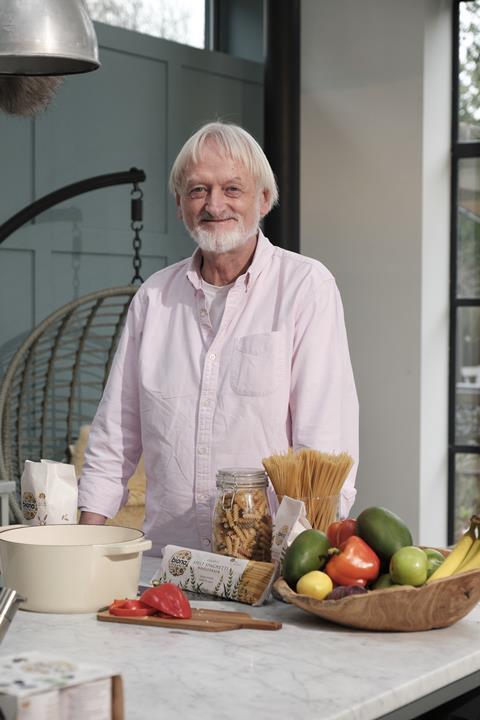
Born: Monaghan, Ireland
Lives: Kingston upon Thames, London
Age: 77
Family: Wife, Donata; two daughters, Amy and Lisa; five grandchildren. We all live in the same street
Potted CV: Organic farmer; founded organic food shop/restaurant; co-founded Biona and its parent company Windmill Organics
Business motto: Enjoy today and build a better tomorrow
Item you couldn’t live without: My organic spelt pillow – it rustles a bit, but it provides perfect support!
Hobbies: I write poetry every morning, plus yoga and baking bread
Favourite restaurant: Our old restaurant – it’s never been surpassed!
Favourite Biona product: Crunchy almond butter
The canned aisle is, he admits, “a low-price category”, where people “expect to find things almost for free”. Convincing shoppers to trade up from own label to Biona’s pricier offering is “part of our mission”.
“People need to know when they buy a Biona product, they’re actually changing the world. We’re not there just to make money. Obviously, we have to, to invest in the future, but we’re about changing the world, and we see the consumer as an activist,” he says.
McDonald’s company is unfalteringly mission-led, aiming first and foremost to “give consumers a choice”. He remembers a time when there were no organic canned tomatoes available, so Biona provided them. Then they moved on to canned pulses.
“It’s all about the environmental side. We look at each category and ask: Does the consumer have an organic alternative? No? OK, let’s provide that.”
This has led to Biona now offering a staggering 450 SKUs. McDonald admits the SKU count is a challenge – and that it might sometimes come at the expense of the bottom line.
“We definitely keep on products that 90% of other companies would not. But it’s a business model that works for us. We have our mechanisms of how we deal with it. We have the 80/20 split – all the usual things that people do,” he says.
It helps that Biona is operating in a positive landscape. Last year was a good one for organic food and drink, with NIQ Scantrack and Homescan data for the year to 28 December showing overall sales in retail and hospitality surged 7.3% to £3.7bn on units up 4.7%.
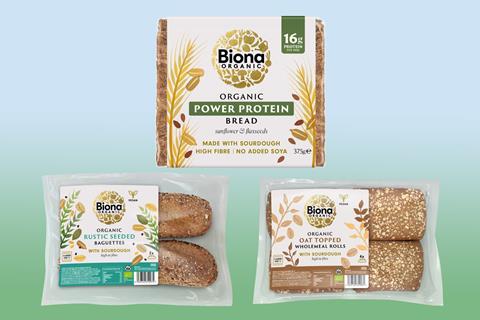
Organic’s ‘moment’
McDonald is not surprised organic seems to be having a ‘moment’. “It fits very well into the UPF debate and many other health trends as well,” he says. “Also, in the mults, there’s a lot of pressure on price, but they also need a premium category for balance.”
Nonetheless, a familiar stick is often used to beat organic: while last year’s growth was impressive, it still only accounts for approximately 1.3% of the total food and drink market in the UK – similar to a decade ago. Many argue it looks unlikely organic will ever reach anything like critical mass. But McDonald is optimistic.
“It has happened in some countries. Denmark, for example. Danish schools have to supply organic food, and that’s how it starts – children are educated about organic food, so they grow up as organic consumers. Even in Germany, the availability of organic food is phenomenal compared to the UK. So, it can happen.”
World food focus
In the coming months, Biona is aiming to build on the category’s impressive 2024. First up will be “exciting” NPD – what McDonald terms “world food in a can”.
Partly in response to the cost of living crisis, the brand is “working on a Moroccan tagine in a can” and similar products. Aware of the sometimes negative perceptions of such meal solutions, McDonald is adamant it’s “very possible to achieve” restaurant-quality food in this format – “it’s a question of good ingredients and a great chef behind the scenes”.
Read more Big Interviews:
-
HelloFresh CEO Philip Doran on problem-solving, preferences and popularity
-
Elise Seibold: ‘Suntory failed its customers in 2024’
-
How Joanna Allen got freefalling Little Moons back in control
-
How Katie Secretan is steering Nisa to its new life as Co-op Wholesale
The brand has also “beefed up” its marketing department and is “really focusing on social media” through partnerships with influencers including Sophie Waplington and Christina Soteriou.
“I think the brand’s at a tipping point. We’ve been at it for 40 years, but it’s been sort of in the background – now we’re bringing it on to a bigger stage,” he says. “We’re getting a lot smarter in our marketing, looking into the psychological models of the brand. This deeper level of thinking is going on now.”
From McDonald’s perspective, it “all comes back to purpose – if you’re doing these things for the good of the planet, it’s great”. After all, he’s clear that the more people Biona can convert to buying organic, the closer he is to his stated ambition. So, 40 years in, how does he feel “changing the world” is going?
“I’m proud of what we’ve achieved. We started with 10 acres on the commune, then 12 on my farm, and now we’re guardians of about 12,000 acres of organic farm. That’s really exciting. But we’re looking for 100,000 acres now. I’ve still got that fire, like we haven’t really got started. There’s a lot more to achieve. Definitely.”







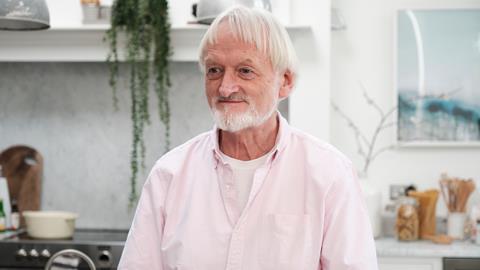





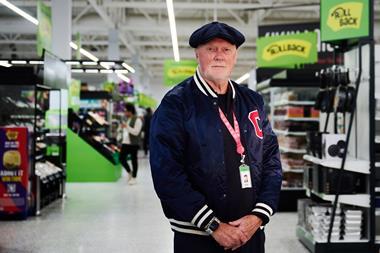
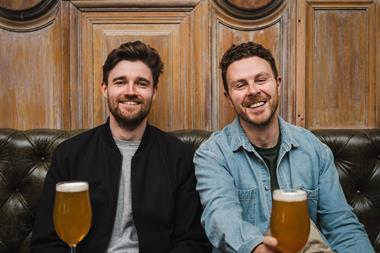
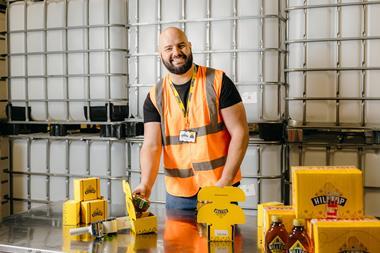
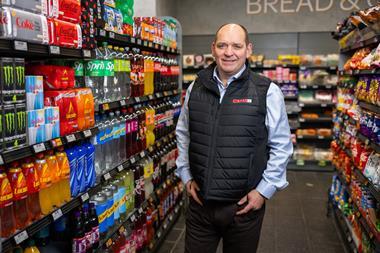
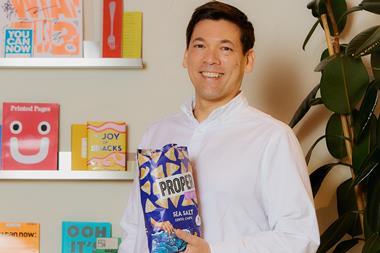
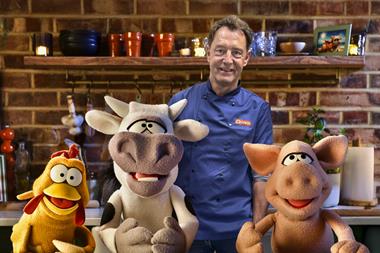
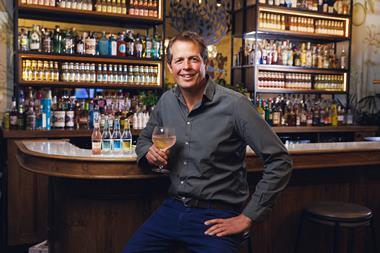
No comments yet